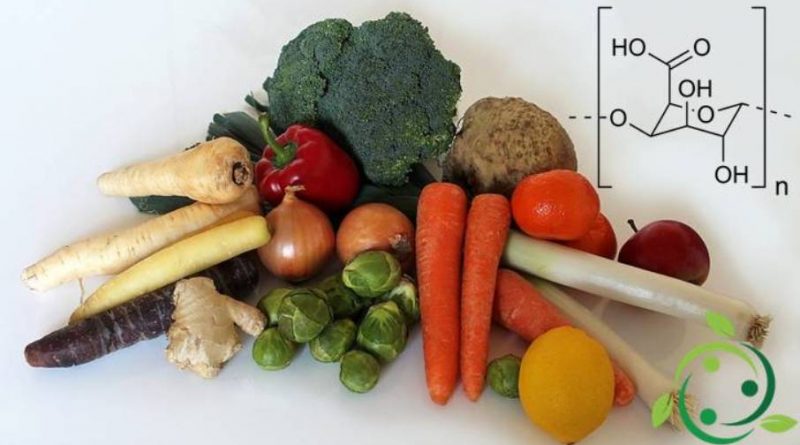Pectic acid
Pectic acid
Pectic acid, also known as: pectate, poly (1,4-α-D-galatturonate), α-D-polygalacturonic acid and whose brute or molecular formula is: (C6H8O6) n is an insoluble polysaccharide in water.
Pectic acid (also known as polygalacturonic acid) is found in ripe fruit and some vegetables. Pectic acid comes from the natural enzymatic degradation of pectins during the fruit ripening process.
The enzyme that oversees this catalytic reaction is pectinesterase.
Pectins (or pectic substances) are substances (acidic polysaccharides of complex structure) very abundant in nature: they are found in the cell walls of plant tissues.
They are hydrophilic substances that are easily hydrated, taking on a gelatinous appearance and consistency.
Pectins include pectic acid and its derivatives, protopectin and the methylated form of pectins. Together with other substances such as gums and mucilage they belong to the group of soluble fibers.
Warning: The information given is not medical advice and may not be accurate. The contents are for illustrative purposes only and do not replace medical advice.

